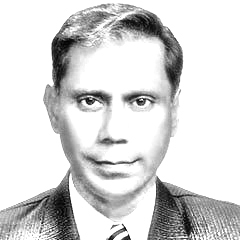The New Year, which was expected to usher in glad tidings in the wake of the challenges of COVID-19 and the political impasse created by the opposition, instead, revived the horrors of terrorism, supposedly on the decline. The horrendous strike occurred in Pakistan’s soft underbelly, Balochistan and the victims are the hapless Hazaras. According to reports, eleven coal miners were killed after unidentified men kidnapped and were later slaughtered at the Mach coalfield of Bolan district, around 80km away from Quetta in Balochistan on Sunday, January 3, 2021. Four other miners were seriously injured. According to officials, the miners shared a residential room near the coal mine where they worked.
Islamic State, also known as Da’ish, later claimed responsibility for the attack, through its Amaq news agency via its Telegram communications channel. Security officials have provided details of the gruesome mass assassination, informing that the brutal assailants first separated the miners, tied their hands and feet, took them out into the hills and later executed them using a sharp instrument, beheading some. The ruthless act by itself bears the stamp of the Da’ish, who had terrorized Syria and Iraq in the last decade, mostly targeting members of the Shia community.
The group has been designated as a terrorist organization by the United Nations and is known for its gruesome videos of beheadings and other types of vicious executions of both soldiers and civilians, including journalists and aid workers, and its destruction of cultural heritage sites. Da’ish committed ethnic cleansing on a historic scale in northern Iraq and Syria but after being defeated and routed from the Middle East, the cold-blooded killers have set their eyes on the Khorasan region. The Wilayat Khorasan is a branch of the Da’ish active in South and Central Asia, mainly in the border region of eastern Afghanistan and northern Pakistan, but its area of operations also includes other parts such as Tajikistan, and India where extremist individuals have pledged allegiance to it. For Pakistan, the Da’ish announced the group’s formation in January 2015 and appointed former Tehreek-i-Taliban Pakistan (TTP) militant Hafiz Saeed Khan as its leader, with former Afghan Taliban commander Abdul Rauf Aliza as deputy leader. Aliza was killed in a U.S. drone strike in February 2015, while Khan was killed in a U.S. airstrike in July 2016.
It is the collective responsibility of every Pakistani and not just the intelligence and law enforcing agencies but all opinion builders including politicians to make a concerted effort to defeat the monstrous plot of the enemy to destabilize us
The leader of the Daesh-Khyber Pakhtunkhwa (KP), Abdullah Orokzai, also known as Aslam Farooqi, was captured in April 2020. This only goes to show that the group continues to be active in Pakistan and is reportedly being used as a tool by Pakistan’s detractors to wreak havoc.
Surprisingly, Pakistan is wary of the machinations of the enemy. It has submitted dossiers to the United Nations and heads of governments of western nations and influential leaders to expose the odious agenda of the enemy against Kashmiris and Pakistanis. Our leadership has taken cognizance of the Fifth Generation or Hybrid Warfare waged by the enemy. Our security analysts do not tire from discussing the heinous conspiracies being hatched against Pakistan and the modus operandi adopted by its disparagers to destabilize it.
The exposé by the EU DisinfoLab has also provided graphic details of the conspiracies being hatched against Pakistan and China. It is now evident that the disparagers who want to denigrate China’s mega Belt and Road Initiative (BRI) and its flagship project—the China Pakistan Economic Corridor (CPEC)—will go to any length to place impediments in their path. The flurry of attacks in various locations, especially on the security and law enforcing agencies in Balochistan is a testament to the fact the enemy is getting desperate to disrupt the projects, which once completed will usher prosperity in the region.
Targeting the Hazara Community of Quetta is not a new ploy. In the past too Hazara pilgrims returning from Iran have been deliberately targeted because firstly they are a peace loving community, secondly they belong to the minority Shias and the aim is to drive a wedge between them and the majority Sunnis.
It is noteworthy that at the drop of a hat, Indian media, as if on cue, jumped on the opportunity to rub salt in the wound. Coyly remaining oblivious to the bloodbath being conducted against hapless Kashmiris in Indian Illegally Occupied Kashmir (IIOK) and the persecution of Sikhs, Christians and even lower caste Hindus the Dalit, Indian media started chastising Pakistan. The theme being repeated non-stop was “Ethnic Hazaras have been long persecuted in Pakistan for their faith, facing targeted attacks and large scale bombing that has killed hundreds in the last two decades.”
It is true that the Hazaras are grieving and protesting. Their demand is genuine that the real perpetrators of the reprehensible slaughter of Mach coal miners be brought to justice but it is the collective responsibility of every Pakistani and not just the intelligence and law enforcing agencies but all opinion builders including politicians to make a concerted effort to defeat the monstrous plot of the enemy to destabilize us. We have to avoid point scoring and starting a blame game but put our collective wisdom together to identify the hidden enemy and defeat its noxious agenda otherwise more innocent blood will flow.
